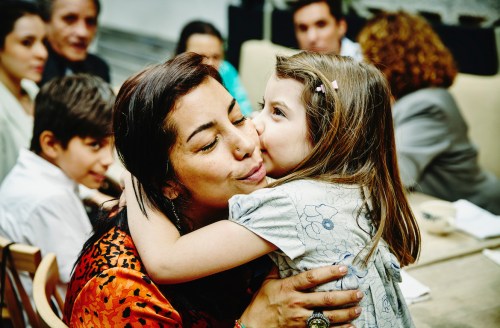I was never able to meet my grandmother or my uncle on my mother’s side. My grandmother died nearly a decade before I was born. As the story goes, she was ill for many years but, by the time she sought medical care, it was too late; cancer ravaged her body so thoroughly that doctors weren’t sure where the tumor had originated. My uncle suffered from a mental health condition that remained undiagnosed and untreated until his untimely—and avoidable—death.
In 1961, before all this, my mother and her brother were put on a plane in Havana and sent to New Orleans. They were just kids, but they would never see their homeland again. A year later, my grandmother joined them. They went from living in a large house surrounded by family in Havana to living in public housing, the lone Cubans in a neighborhood dubbed “The Irish Channel.” My grandmother never recovered; as family lore goes, she refused to celebrate another a birthday or holiday. My grandmother had been a school principal back in Havana, but in America, she couldn’t even help her daughter with her English-language homework.
My mother is now sixty-eight years old. Over the past year, she has grown uncharacteristically weak and frail. For awhile, she barely ate, and none of us could understand the cause of this sudden “loss of appetite,” as she called it. By the time my sister was able to drag her to the doctor, our mother had lost around thirty pounds. The culprit? Advanced colon cancer.
As my mother lies on the couch in her living room, recovering from surgery, I ask her why she hadn’t gone to the doctor sooner. She shrugs. “I’m not used to going to the doctor.” After pressing her further, my mother admits that she didn’t see a doctor until she was in law school. She came to this country at the age of nine, and yet, she didn’t receive medical care for over a decade. My sister and I are stunned by this. We grew up with braces and annual check-ups. “But why not?” I ask. “Why didn’t your mother take you to the doctor?”
My mother shrugs. “Maybe we didn’t have medical insurance? How am I supposed to know? I was just a kid,” she says.
She came to this country at the age of nine, and yet, she didn’t receive medical care for over a decade. My sister and I are stunned by this. We grew up with braces and annual check-ups.
Researching access to healthcare in Latinx communities, I begin to get a better understanding of how this happened. A 2008 study indicates that Latinx individuals have lower rates of health insurance than other ethnic groups; 40 percent of Mexicans and Mexican Americans, 26 percent of Cubans, and 21 percent of Puerto Ricans were uninsured in 2006 as compared to 16 percent of white non-Latinos.
Another barrier to health amongst the Latinx population is disproportionate levels of poverty, with 22 percent living below the poverty line in 2006 as compared to 10 percent of white non-Latinos. “The concentration of poverty [that is] dominant in Latinx communities can lead to increased exposure to elevated levels of chronic and acute stressors,” says Ashley Kranjac, PhD, a sociologist who studies health inequalities and social stratifications. “Lower social status creates certain stressors such as discrimination and intergenerational trauma, and this stress is significantly related to a number of health problems and disabilities, including major depressive disorder [i.e. depression].”
“Mental health concerns like depression are generally undertreated in Latinx communities,” says Elizabeth Cotter, PhD, an assistant professor of health studies at American University. According to her research, “barriers to accessing treatment can include lack of health insurance, documentation status, language barriers, and stigma around mental health issues.” She has also found that “cultural differences in describing symptoms of depression might also lead providers to misdiagnose individuals from the Latinx community, further precluding people from receiving the appropriate treatment.”
Was it trauma from fleeing her beloved homeland that prevented my grandmother from putting her health first—and teaching her children to do the same? As a card-carrying member of the self-care generation, it’s hard for me to understand the impulse to ignore signals of disease or illness in one’s body. But given high poverty rates in Latinx populations and social stressors that negatively impact the body, as well as lack of access to health insurance, I’m beginning to understand that there’s more to my family’s story than simple avoidance.
Sign Up for Our Daily Newsletter
Get all the latest in wellness, trends, food, fitness, beauty, and more delivered right to your inbox.
Got it, you've been added to our email list.











